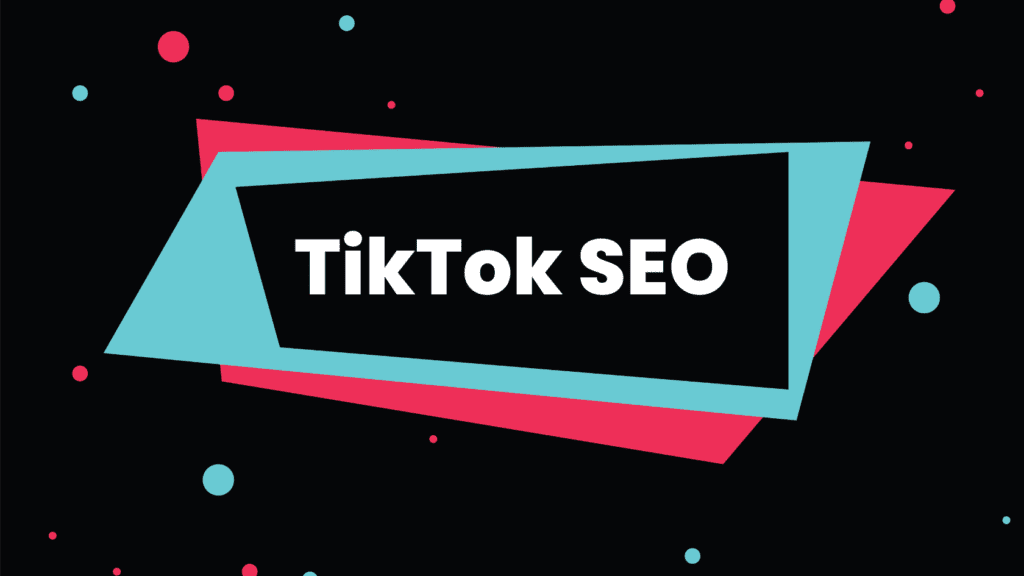As search engines refine their algorithms and new technologies like AI and voice search gain traction, the future of search marketing is filled with uncertainty and opportunity. Marketers need to anticipate the changes and adapt their strategies accordingly to stay ahead.
In this article, we tap into the collective wisdom of 15 SEO predictions for 2025 and beyond. Industry SEO leaders share their thoughts on emerging tools and technologies, game-changing algorithm updates, and discover the trends that will shape the future of SEO and how you can prepare for them today.
Integrate AI for Better SEO
The future of SEO/SEM is heading towards greater integration of AI and machine learning. We’ve already seen how AI tools can refine keyword strategies and content personalisation. For example, using AI-driven insights, we helped clients increase their organic traffic by 25% through more targeted content.
In the coming year, we expect tools like Google’s RankBrain to become more sophisticated, enhancing search result accuracy based on user intent. Additionally, the rise of voice search will necessitate focusing on long-tail keywords and natural language processing. Tools like Moz and Surfer SEO will likely evolve to support these trends, offering more refined analytics and optimisation capabilities. Keeping pace with these technological advancements will be key to thriving in SEO/SEM.
Sahil Kakkar
CEO & Founder, RankWatch
Use AI Wisely in SEO
AI is an effective tool that can supercharge SEO when used wisely. It can automate tasks, uncover insights, and inspire new ideas. However, it is not a magic wand. Human creativity, strategy, and understanding of search engine algorithms are still essential.
Consider AI as a co-pilot, helping you navigate the complicated world of SEO. It can analyse data, suggest keywords, or even draft content outlines. But it’s up to you to refine, optimise, and infuse your content with personality and value.
James Owen
Co-Founder & Director, Click Intelligence
Be a Leader in Your Field
Over the next 12 months, we will see a major shift in SEO as there is finally a real threat to Google’s dominance. With the widespread acceptance and usage of AI tools such as ChatGPT, people rely less on Google to find information. Even Google uses its own AI technology to give direct answers to questions ahead of its search results.
Moving forward, the key to success in SEO is to focus on being a leader in whatever field your business is in. Focus on getting a ton of Google reviews and getting your business added to “best of” listicles so that if someone asks AI for the top businesses in your industry, there are enough brand mentions of your company so that you show up in the AI results as well as the organic results.
Adam White
Founder, Serpple
Focus on User Intent and Experience
In the next 12 months and beyond, SEO/SEM will increasingly focus on user intent and experience, driven by AI and machine learning advancements.
To stay ahead, businesses should optimise voice search by using natural language and long-tail keywords as voice-activated devices continue to rise in popularity. Ensuring websites are mobile-friendly, and fast-loading will be crucial due to Google’s mobile-first indexing. Tools like Google’s Mobile-Friendly Test and PageSpeed Insights can help with this.
Visual and video search optimisation will also become more critical; descriptive file names, alt text, and schema markup will enhance search visibility.
Slavko Kovacevic
Head of SEO, Health Link SEO

- A zero-click search is when a user’s search shows a result that directly answers the query on the search engine results page (SERP). So the user doesn’t have any need to click on a link.
Get Ready for the Rise of No-Click Searches
The future of SEO and SEM is about to get even more unpredictable.
With advancements like Google’s SGE and AI-powered chatbots, users are increasingly finding answers directly on the search page without needing to click through. This growing trend of “no-click” searches makes it essential for our content to shine in search snippets. Think of it like nailing your pitch the moment the elevator doors open!
As voice search becomes more ingrained in daily life, optimising for conversational, natural-sounding content is non-negotiable—even years after the rise of Amazon Echo and Google Home. And when it comes to visual search, accurate tagging of images and videos is key.
In a world flooded with AI-generated content, demonstrating that we’re the genuine article is more crucial than ever. Highlighting our expertise, building trust through real testimonials, and keeping our content up-to-date will help us stand out. Using credible sources and showcasing real-world examples separates us from the noise.
With platforms like TikTok, YouTube, and forums turning into alternative search engines (TikTok’s search algorithm is surprisingly effective!), people are looking for quick, authentic answers and practical use cases. To stay visible, we need to optimise our content not just for Google but also for these platforms.
Tom Edwards
Founder, Bit Quirky Consulting Ltd
Optimise for Natural Language Queries
Advancements in Natural Language Processing (NLP) will significantly impact SEO in the next 12 months. With tools like SearchGPT enhancing search capabilities, SEO strategies will increasingly focus on understanding and optimising natural language queries.
For example, if you Google “best plants to grow in summer” and “which plant should I grow first in summer,” you’ll get similar results without specific recommendations on the first plant to grow.
SearchGPT, however, answers the question directly. This shift will require websites to optimise for conversational queries and long-tail keywords, ensuring content is easily discoverable and aligns with how users naturally ask questions.
Dhiren Mulani
SEO Specialist, Earningify.com

Expect Increased AI Integration
In the next 12 months and beyond, the future of SEO/SEM will likely be shaped by advancements in AI, changes in search engine algorithms, and a growing focus on user experience. Here’s what to expect:
- Increased AI Integration: Tools like ChatGPT and Google’s Bard pave the way for AI-driven content creation, keyword research, and predictive analytics. AI will continue to refine how content is optimised and personalised, making it easier for businesses to tailor their strategies to specific audience segments.
- Voice Search Optimization: With the rise of voice-activated devices, optimising for voice search will become increasingly important. This means focusing on more natural language queries, long-tail keywords, and conversational content.
- Algorithm Updates: Google and other search engines will likely continue to prioritise content quality, user experience, and site performance. We expect further algorithm updates focusing on rewarding websites with high-quality, authoritative content, fast load times, and mobile optimisation.
- Evolving SEM Strategies: As privacy regulations tighten, targeting and tracking in SEM may shift. Marketers will need to adapt to changes in cookie policies and third-party data usage by focusing more on first-party data and contextually relevant ads.
- Enhanced Analytics Tools: Expect more sophisticated tools that leverage AI for predictive analysis, trend identification, and deeper insights into user behaviour. These tools will help marketers make data-driven decisions more efficiently.
Overall, SEO/SEM will increasingly intertwine with AI and machine learning, focusing on delivering more personalised, high-quality user experiences. Adapting to these trends will be crucial for staying competitive in the digital landscape.
Dhruv Shah
Digital Marketing Manager
Prioritise User Experience and Relevance
Firstly, integrating AI and machine learning in search algorithms will continue to advance. Search engines like Google increasingly use AI to understand user intent and deliver more personalised search results. SEO strategies must focus more on user experience, relevance, and content quality. Tools that leverage AI for predictive analytics and content optimisation, such as Clearscope and MarketMuse, will become essential for staying ahead in SEO.
Voice search is another area that will grow in importance. With the rise of smart speakers and voice-activated assistants, voice search optimisation will be crucial. This will involve focusing on natural language queries and long-tail keywords and ensuring that content is structured to answer common questions directly and concisely.
The emphasis on mobile-first indexing will continue to be significant. As more users access the internet via mobile devices, ensuring that websites are mobile-friendly is not just an option but a necessity. This includes fast load times, responsive design, and a seamless user experience across all devices. Tools like Google’s Mobile-Friendly Test and PageSpeed Insights will remain vital for optimising mobile performance.
Video content is set to play an even larger role in SEO. With platforms like YouTube being major search engines in their own right, optimising video content for search visibility will be crucial. This includes using proper tags, descriptions, and transcripts to enhance discoverability. Tools like VidIQ and TubeBuddy can assist in optimising video content for better SEO performance.
Regarding algorithm changes, we expect Google to continue refining its focus on E-A-T (Expertise, Authoritativeness, Trustworthiness). Building a strong online reputation through quality content, credible backlinks, and a solid user experience will be more important than ever. Ensuring that content is factually accurate, well-researched, and authored by credible sources will be key strategies.
Local SEO will also see continued growth, especially with the increasing use of mobile search. Businesses must optimise their Google My Business profiles and ensure their local citations are accurate and consistent. Hyperlocal targeting and localised content will be critical for companies attracting nearby customers.
John Reinesch
Founder, John Reinesch Consulting
Improve Core Web Vitals
With the increasing emphasis on user experience, Google’s Core Web Vitals will play a critical role in search rankings. We experienced this when optimising our client’s e-commerce site, which saw a 30% traffic boost after improving page load speed and interactivity. This shift underscores the importance of technical SEO.
We anticipate advancements in AI-driven tools like Google’s BERT and OpenAI’s GPT models, which enhance content relevance and understanding of user intent. Tools like SEMrush and Ahrefs will continue to innovate for monitoring, providing deeper insights into search trends and competitor strategies. Staying agile and adapting to these changes will be crucial for maintaining a competitive edge in SEO/SEM.
Vaibhav Kakkar
CEO, Digital Web Solutions
Adapt to AI-Powered Tools
The future of SEO and SEM is unfolding before our eyes, and it’s undeniably intertwined with the rise of AI. In the next 12 months and beyond, I anticipate a significant shift towards AI-powered tools and technologies that will revolutionise how we approach search engine optimisation and marketing.
First and foremost, AI will play an even more prominent role in content creation and optimisation. We’re already seeing AI tools assisting with keyword research, content generation, and on-page optimisation, and this trend will only accelerate.
Expect to see more sophisticated AI algorithms that can analyse vast amounts of data to identify trends, predict user behaviour, and personalise content recommendations. This will enable marketers to create more targeted and engaging content that resonates deeply with their audience.
Furthermore, I anticipate AI-powered search features like voice and visual search gaining even more traction. As these technologies become more mainstream, marketers must adapt their SEO strategies to optimise their content for these new search modalities.
Another trend to watch is the increasing importance of E-E-A-T (Expertise, Authoritativeness, and Trustworthiness). Google has clarified that they prioritise content from reputable sources, and I expect this trend to continue. As AI-generated content becomes more prevalent, it will be even more critical for brands to establish themselves as thought leaders and create content demonstrating their expertise and authority.
My advice? Start optimising for AI and embracing this technology now. The future of SEO and SEM is here, and those who are prepared to adapt and innovate will reap the rewards.
Michael Lazar
CEO, Content Author

Watch for Non-SEO Channels
Due to several dynamic factors, SEO will be particularly interesting over the coming 12 months. The DOJ ruling against Google is poised to reshape the search landscape, potentially diminishing Google’s dominance. Additionally, ongoing concerns about AI accuracy are prompting users to seek reliable information sources, creating opportunities for other search engines like Bing and Brave, which are aggressively vying for market share.
Meanwhile, non-SEO channels are gaining traction, with Meta pushing Meta AI towards an almost-instant 3-billion-user market penetration and TikTok’s growing influence. This shift could lead users to move away from traditional search engines altogether, opting instead for platforms like Meta and TikTok for their information needs.
Dan Taylor
Partner, SALT.agency
Adapt to AI and User Intent
A deeper integration of AI and machine learning in search algorithms will likely define the future of SEO and SEM in the next 12 months. I’ve noticed that search engines are becoming more adept at understanding user intent, thanks to advancements in AI. For instance, Google’s BERT and MUM updates have significantly improved how search queries are interpreted. I expect AI tools that assist with content creation, keyword research, and predictive analytics to become more sophisticated and widely used.
In my experience, staying ahead in SEO/SEM requires adaptability. A few years ago, I focused heavily on keyword optimisation, but as search engines evolved, I shifted toward creating high-quality, user-centric content. This strategy has paid off, as user-experience metrics like dwell time and engagement have become crucial ranking factors.
Looking ahead, I foresee algorithm changes emphasising these metrics even more. Additionally, voice search and mobile-first indexing are trends that cannot be ignored. Tools that optimise voice queries and enhance mobile user experience will be essential in maintaining a competitive edge in the SEO landscape.
Brandon Leibowitz
Owner, SEO Optimizers
Prepare for AI and Machine Learning
In the next twelve months, I see SEO and SEM becoming even more advanced with AI and machine learning. There will be a rise in voice and image searches, thus calling for greater use of natural language optimisation and image/video SEO. With its Core Web Vitals and E-A-T (Expertise, Authoritativeness, Trustworthiness) principles for user experience, Google will require high-quality content that loads quickly on websites. Predictive analytics powered by AI, including GPT-4 tools, will be important for content creation and keyword analysis. In addition, enhanced AI ad platforms will facilitate precise targeting and greater budget efficiency.
Gaby Alexander
Sales Director, SERPninja

Create User-Centric Content
In the next 12 months, I see SEO and SEM becoming more focused on user intent and experience. Search engines are getting smarter at understanding what people really want, so creating content that genuinely helps users will be critical.
I expect more advanced AI tools for SEO, such as tools that can better analyse user behaviour on websites and suggest improvements. These tools will help us create more engaging and useful content.
Voice search is also growing, so optimizing for natural-language queries will be important. This means using more conversational keywords and answering specific questions that people might ask their voice assistants.
Algorithm updates will likely continue to prioritise high-quality, relevant content. We might see more emphasis on factors like page speed, mobile-friendliness, and secure connections (HTTPS).
Overall, staying adaptable and focusing on delivering real value to users will be crucial for success in SEO and SEM.
Umair Hussain
Digital Marketing Manager, Cloudways (DigitalOcean)
Focus on User Experience and Quality
I think SEO/SEM will focus more on user experience and high-quality content in the next year and beyond. Search engines will keep improving their algorithms to better understand and rank helpful content. AI and machine-learning tools will help marketers understand users’ wants and improve their strategies. Voice search and mobile optimisation will become more important, and we’ll see more visual and video content in search results.
Evgen Kushnirchuk
Marketer, SEO Expert, and CEO of Hire Developers Biz

Wrapped: SEO Predictions for 2025 and Beyond
As we look ahead to the next 12 months, it’s clear that SEO and SEM is set to undergo significant transformations. The game’s rules are evolving rapidly from the rise of no-click searches and the proliferation of AI-generated content to the growing influence of alternative search platforms like TikTok and YouTube. But with every challenge comes opportunity.
To stay competitive, marketers and SEO consultants must embrace these changes, adopting new tools, technologies, and strategies that align with the shifting behaviour of users and search engines alike. Focusing on delivering value—whether through content that engages and educates or seamless and intuitive experiences—will be key to staying ahead of the curve.
The future of search is about more than just keeping pace with algorithm updates or the latest AI-powered trends. It’s about understanding what people truly need and how they search for it. As personalisation and user intent become more central to search engine optimisation, creating content that resonates on a human level will be more critical than ever. This means optimising for clicks and meaningful engagement, credibility, and trust.
Ultimately, the companies that will thrive see beyond the trends and focus on the bigger picture—delivering real value to their audience across every touchpoint. As you prepare for the future of SEO and SEM, remember that the fundamentals still matter: high-quality content, user experience, and building trust remain at the heart of effective search strategies. But those who are willing to experiment, adapt, and innovate will be the ones to lead in the ever-changing world of search marketing.
The predictions shared by our 15 thought leaders offer a glimpse into what’s coming, but the real impact will be determined by how we apply these insights in the real world. Stay curious, stay flexible, and most importantly, stay focused on your audience’s needs—because that’s the constant that will always drive success in SEO and SEM, no matter how the landscape shifts.



